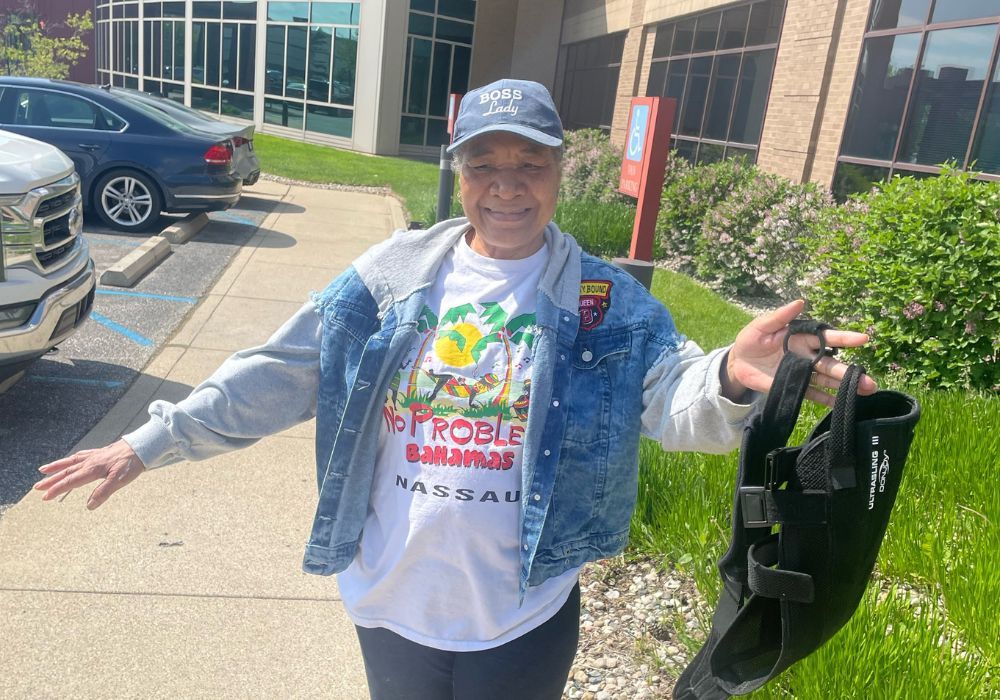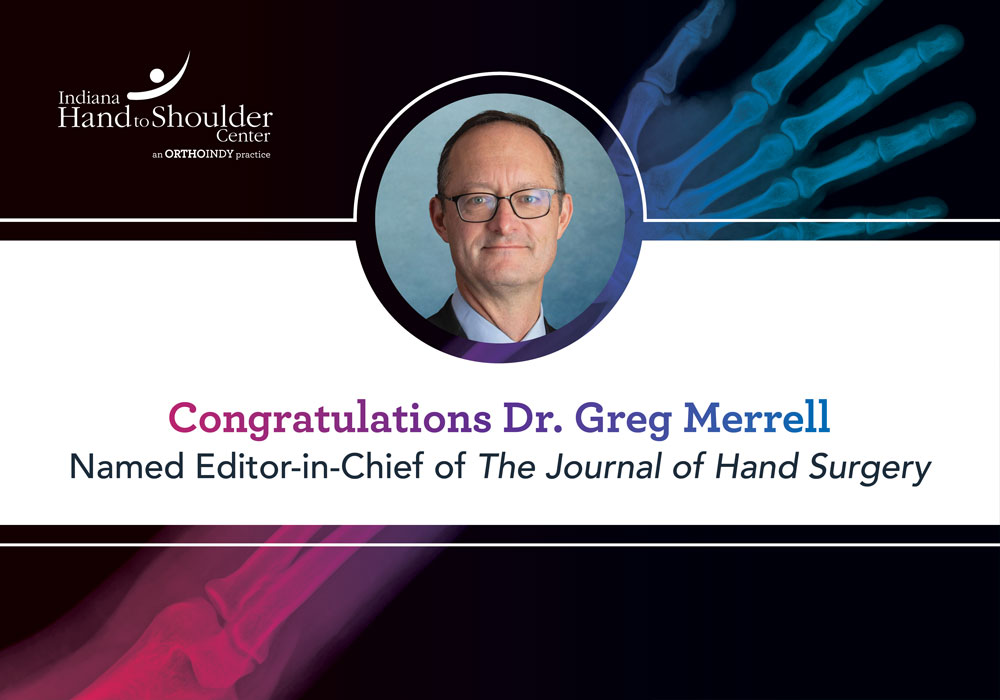There are many different shoulder pain causes, so if you’re experiencing aching shoulder pain or have a shoulder injury, it can be hard to know what to do and when to see a doctor.
OrthoIndy shoulder specialist Dr. Jeffrey Soldatis works with patients every day that are dealing with an aching shoulder and limited mobility.
“If symptoms persist beyond two weeks or recur with the same activity without improvement, I recommend additional evaluation,” says Dr. Soldatis. “Poor motion for five to seven days also warrants evaluation.”
Read on to learn the different causes of shoulder discomfort, and find out Dr. Soldatis’s recommendations for treating an aching shoulder.
What are the most common injuries that cause an aching shoulder?
While anyone can develop a shoulder problem, it’s more common for athletes to experience an aching shoulder. Athletes develop shoulder issues over time through athletic routines.
Dr. Soldatis sees plenty of sports injuries. “The most common sports injuries I treat are AC separation, rotator cuff strain, shoulder dislocation or labral injury, and clavicle fractures,” says Dr. Soldatis.
Sports that involve frequent and repetitive, overhead motion are the most common causes of shoulder pain. These overhead motions are common in sports such as baseball and football.
It is tempting to ignore an aching shoulder pain and some athletes may even play through the pain. But, ignoring the pain can cause more damage to your shoulder and even make the injury worse.
Post-traumatic arthritis is a type of osteoarthritis that forms after an injury if it’s ignored.
Make an appointment with a shoulder specialist
Rotator cuff conditions
Normal, daily activities that involve an overhead motion can also cause shoulder injuries that lead to an aching shoulder. While rotator cuff issues are common for athletes, anyone can be impacted.
According to the American Academy of Orthopaedic Surgeons, every year about two million people go to their doctor with a rotator cuff issue. There are different categories of rotator cuff problems, which include:
Shoulder instability
Shoulder instability occurs when joints in the shoulder come out of their regular position, which can result in joint dislocation. You may experience shoulder pain when lifting your arm
Subacromial impingement
Subacromial impingement happens when the shoulder blade and shoulder muscles rub together, it causes an impingement. Impingements require medical attention right away or the injury could become more severe. The joint between the clavicle and the shoulder blade can develop shoulder arthritis over time.
A rotator cuff tear arthropathy is another form of arthritis that can develop when a rotator cuff tear is not treated.
This condition results from the humerus coming out of its socket and rubbing against the shoulder blade. This could damage the bones, which turns into arthritis over time and contributes to an aching shoulder.
When should I see a doctor for an aching shoulder?
If you’re dealing with an aching shoulder, you should see a doctor in a timely manner so the problem doesn’t worsen. Your doctor will take X-rays to determine any injury and to see if you may have arthritis.
If you have any one of the symptoms below, you should schedule a visit with an OrthoIndy physician:
- Stiff shoulder
- Difficulty moving your arm normally
- The sensation that your shoulder could pop or slide out of its socket
- Lack of shoulder strength
Nonsurgical treatments
Your doctor may recommend nonsurgical interventions to provide relief to your aching shoulder, including:
- Rest and ice
- Nonsteroidal anti-inflammatory medications (NSAIDs), such as ibuprofen
- Physical therapy
- Corticosteroid injections, which temporarily reduce inflammation and pain
Learn more about OrthoIndy shoulder treatments
Surgical treatments
If nonsurgical treatments aren’t helping to relieve an aching shoulder, surgery may be recommended. These types of procedures include:
Shoulder arthroscopy
A shoulder arthroscopy is performed for a sports or rotator cuff injury. This minimally invasive procedure inserts an arthroscope, or camera, into the shoulder joint to repair the tissue.
Shoulder joint replacement
When the arthritis is advanced, the surgeon may perform a shoulder joint replacement. It involves removing damaged parts and replacing them with a prosthesis. Oftentimes, this is a total shoulder replacement surgery.
“The most common procedure I use for shoulder arthritis, or glenohumeral, is anatomic total shoulder replacement surgery,” says Dr. Soldatis.
“When extensive arthritis or extensive rotator cuff disease is present, a reverse replacement is used. We reverse the mechanics of the ball and socket. Otherwise, the procedure and recovery are very similar to the anatomic total shoulder replacement.”
Find out what’s really causing your shoulder pain
If your shoulder pain causes you to miss out on normal day-to-day activities, we can help. Request an appointment online or call OrthoIndy at 317.802.2000 to book an appointment with one of our shoulder specialists.
If your shoulder injury or condition is recent, you can walk right into one of our OrthoIndy Urgent Care locations for immediate care. For rehabilitation and physical therapy, no referral is needed to see one of our physical therapists.





